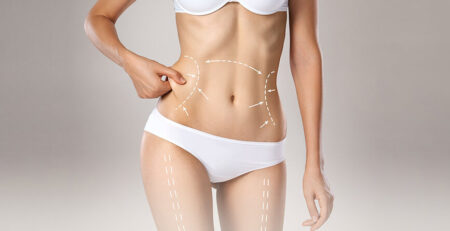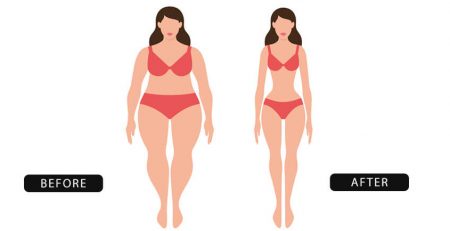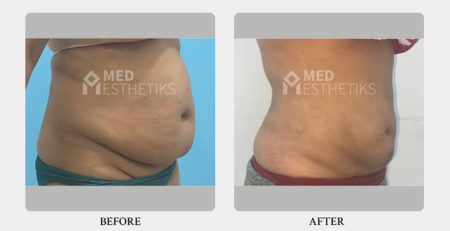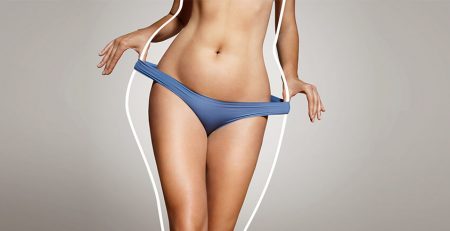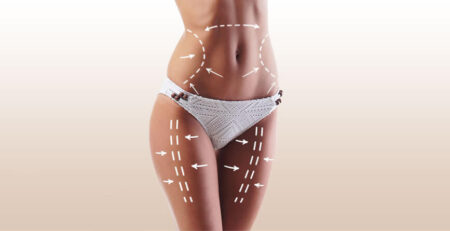Can Fat Return After Liposuction Surgery?
The simple answer is no!
Liposuction surgery in Delhi, is a popular cosmetic procedure many individuals use for a more contoured and sculpted body. Liposuction can create a more defined and aesthetically pleasing shape by suctioning out unwanted fat cells, boosting self-confidence and body image. However, liposuction is not an alternative for weight loss. It can only help to eliminate the extra fat pockets that are resistant to diet and exercise. Liposuction removes the excess fat from specific body areas such as the abdomen, thighs, hips, and buttocks.
Liposuction provides long-lasting results because the fat cells can’t return after the procedure. But how? Let’s understand!
How Liposuction Removes Fat Cells Permanently?
By age 16 to 18, the body has completed the development of fat cells, and the genetic predisposition for fat cell number has been set. After this threshold, the body does not produce new fat cells, implying that the body cannot naturally produce more fat cells.
During the liposuction surgery, the surgeon makes small incisions to insert the cannula, a hollow tube to break the fat cells. These fat cells are suctioned out with a vacuum or suction device, which is attached to the cannula. After that, the incisions are stitched with sutures. Once these cells are removed, they can’t regrow.
Have questions or want to get started? We are ready to help you with a smile!
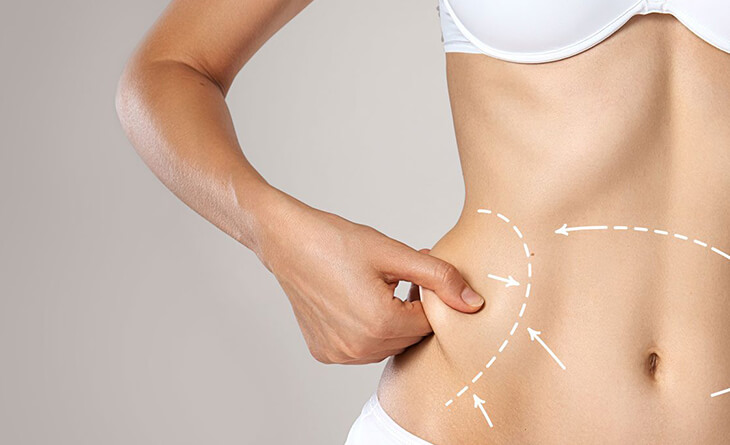
How Much Fat Can Be Removed By Liposuction?
The amount of fat that can be removed by liposuction depends on several factors, including the patient’s overall health, the area of the body being treated, and the type of liposuction being performed. However, in general, the safe limit for fat removal through liposuction is typically around 3 to 5 litres.
Liposuction specifically targets subcutaneous fat deposits, which are situated beneath the skin but above the underlying muscle layer. Subcutaneous fat, despite strenuous fitness activities, can be resistant to diet and exercise. The amount of fat removal also determines the liposuction surgery cost.
Is it Possible to Gain Weight After Liposuction Procedure?
Yes, it is possible to gain weight after the liposuction surgery. However, you will not likely gain weight in the treated area because the fat cells are removed, and the body does not generate new fat cells in that treated region after the procedure.
However, the remaining fat cells can enlarge, and you can gain weight in other body areas. Consequently, it will affect the overall contouring achieved through the liposuction procedure. Therefore, it is essential to maintain weight to enjoy the results for a long time.
The following are the factors that can contribute to weight gain after a liposuction procedure and, consequently, the liposuction surgery cost:
- Overconsumption of calorie-dense foods, high-sugar beverages, and excessive snacking can contribute to weight gain after a liposuction procedure.
- A lack of physical activity can decrease metabolism and muscle mass, making it easier to gain weight a liposuction surgery.
- Hormonal changes, such as those associated with aging or medical conditions, can also cause weight gain after liposuction.
- Neglecting post-operative care and not following the surgeon’s instructions can hinder the healing process and potentially affect the long-term results of liposuction.
- Smoking and alcohol consumption can also make it more difficult to maintain a healthy weight after a liposuction procedure.

How to Maintain the Results of Liposuction Procedure?
Maintaining your weight is essential to maintaining the results of the liposuction surgery. Here are a few tips to maintain the results of the liposuction procedure in Delhi:
Eat A Balanced Diet: A well-balanced diet is essential for maintaining liposuction results. Adopt a balanced diet that includes a variety of whole foods such as fruits, vegetables, lean proteins, whole grains, and healthy fats. Avoid excessive consumption of processed foods, sugary beverages, and high-calorie snacks. Monitoring your calorie intake and eating in moderation can help you manage your weight and prevent fat from returning to treated areas.
Exercise Regularly: Incorporating at least 30 minutes of regular physical activity into your routine is crucial for maintaining a healthy weight and maximizing the benefits of liposuction surgery. Aim for cardiovascular exercises, strength training, and flexibility exercises. Consult your surgeon to develop an exercise plan that aligns with your post-liposuction recovery and long-term goals.
Live a Healthy Lifestyle: Besides a balanced diet and regular exercise, prioritize a healthy lifestyle, including adequate sleep, managing stress levels, and abstaining from smoking and excessive alcohol consumption. A holistic approach to a healthy lifestyle will not only help maintain your liposuction results but also contribute to your overall well-being.
Sleep Management: According to research, persons who do not get enough restorative sleep frequently overeat and struggle to find the drive to engage in physical activity. Excellent sleep hygiene, which includes keeping electronic devices out of the bedroom and not eating for at least three hours before bedtime, can help you achieve consistently restful sleep—a critical component of your overall well-being.
Follow Post-Operative Instructions: Your plastic surgeon may provide post-operative instructions for speedy recovery and maintaining results for a long time. These instructions may include wearing compression garments as directed, attending follow-up appointments, and avoiding activities that may hinder the healing process. Sticking to these instructions will help ensure optimal healing and preservation of the liposuction results.
Set Realistic Expectations: It is essential to have realistic expectations about what liposuction is capable of and what it is not. Liposuction is not an assured way to lose weight permanently or prevent future fat growth. While it can dramatically improve body contour, long-term results require a commitment to a healthy lifestyle. Unrealistic expectations can also raise the liposuction surgery cost.
Consult A Board-Certified Plastic Surgeon: Choose a board-certified plastic surgeon who has extensive experience in performing the liposuction procedure. Experienced surgeons have the skills and knowledge to ensure the best possible outcome and can provide you with valuable guidance on post-operative care. Also, the surgeon will give you an estimation of the liposuction surgery cost.
Take Action!
Liposuction surgery is an effective way to remove excessive fat permanently; however, if you do not maintain a healthy lifestyle and manage weight effectively. Remember, liposuction is not a permanent way to lose weight. Therefore, it is essential to have realistic expectations and consult a board-certified plastic surgeon.
If you are considering a liposuction procedure, book your consultation with Dr Lokesh Handa, a board-certified plastic surgeon in Delhi. He will evaluate your weight and prescribe a personalized approach.

Dr. Lokesh Handa
M.S, M.Ch
Sr Consultant Plastic, Aesthetic and
Hair Transplant Surgeon
Dr. Lokesh Handa, a board-certified plastic surgeon with over 15 years of experience, holds esteemed titles of M.S. and M.Ch. He serves as a Senior Consultant in Plastic, Aesthetic, and Hair Transplant Surgery.
As the Director of Med Esthetiks, his commitment to excellence is evident. Dr. Lokesh Handa is a distinguished member of renowned organizations, including ISAPS (International Society of Aesthetic Plastic Surgeons), APSI (Association of Plastic Surgeons of India), and IAAPS (Indian Association of Aesthetic Plastic Surgeons). With extensive expertise, he blends precision and artistry, offering unparalleled care in the realm of plastic surgery and contributing significantly to the advancement of aesthetic practices.
To book an appointment, call: +91-8800203431 or email: care@medesthetiks.com



